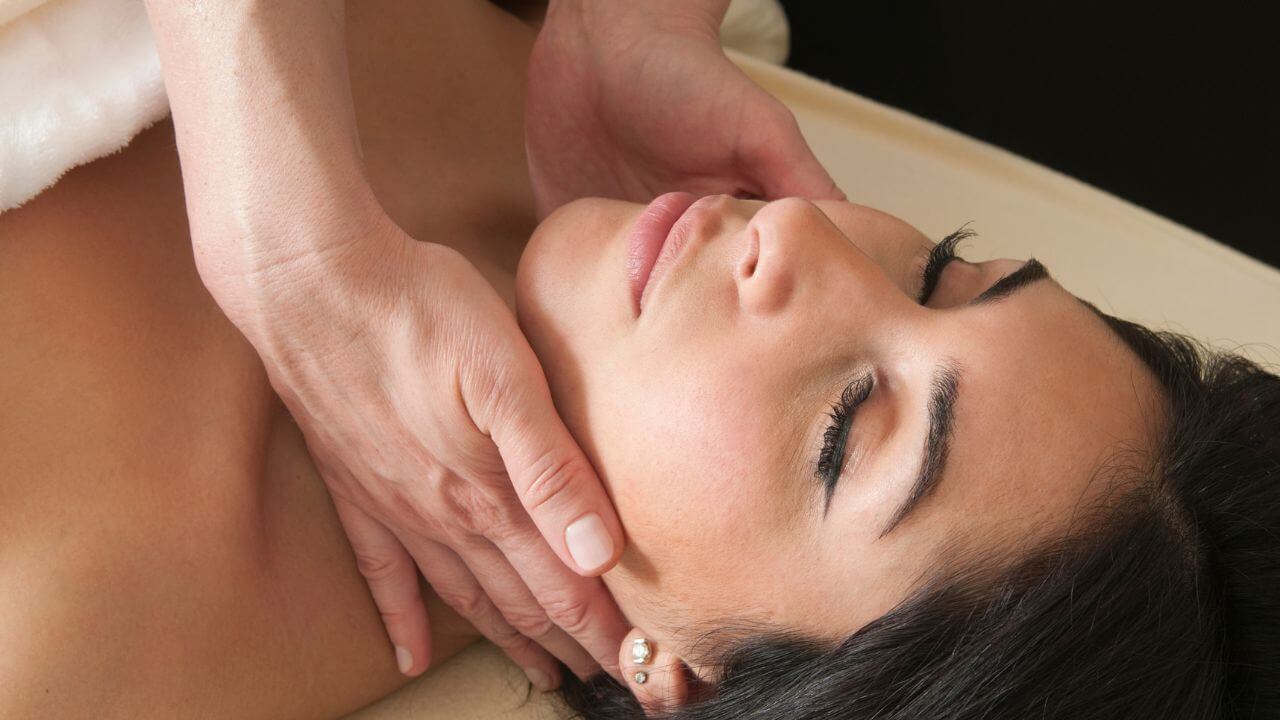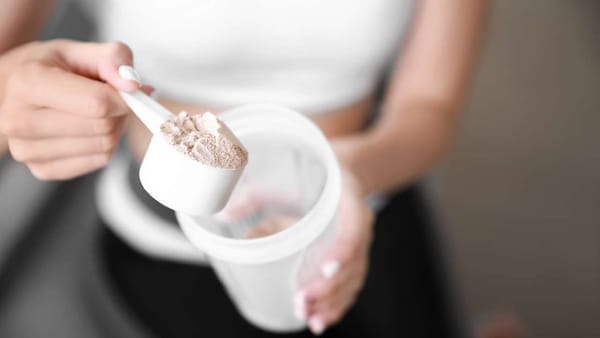Let's face it, we all want to achieve that youthful glow and firm skin. But as we age, our skin starts to lose its elasticity and resilience.
It's not just a matter of vanity; it's about maintaining healthy skin cells. Fortunately, there are several natural ways to improve your skin’s elasticity!
Let’s dive in and explore how to get your skin back on track.

What is Skin Elasticity?
Skin elasticity is the ability of the skin to move with the body and return back to its original shape after being stretched or pulled. This is due to proteins like collagen and elastin in the skin's connective tissue of the dermis layer of our skin.
Collagen helps give structure while elastin helps keep your skin firm yet flexible—the perfect combination for younger-looking, healthy skin!
As we age, our skin cells produce less collagen and elastin resulting in decreased skin elasticity.1 As cells in our skin lose elasticity, they can become more vulnerable to developing expression lines, wrinkles, and other signs of aging.
This makes the skin thinner, drier, and more prone to wrinkles and sagging.
But there are things we can do to help improve or restore skin elasticity—and achieve that enviable youthful look!

Factors That Affect Skin Elasticity
As we age, our skin's elasticity starts to diminish, leading to wrinkles and sagging. But what exactly causes our skin to lose its youthful glow?
It turns out that there are a variety of factors that can cause the degradation of collagen and elastin in our skin—the two proteins responsible for giving us firm, supple skin.
1) Aging
Age is one of the most important factors when it comes to skin elasticity and unfortunately, there’s no escaping it!2 However, if you start taking care of your skin early on in life, you can help slow down the natural aging process and maintain a healthy glow for longer.
2) Environment
The environment is a major factor when it comes to maintaining skin elasticity. Exposure to extreme temperatures and humidity, as well as prolonged sun exposure without proper protection, can damage the proteins that make up our skin’s underlying structure - collagen and elastin.3
Not only can UV rays break down these proteins, leading to wrinkles and sagging, but environmental pollutants can also clog our pores, leading to acne and other skin issues.4
So if you want to keep your skin looking its best, make sure to take all necessary precautions when it comes to protecting yourself from the outside world!
3) Lifestyle Habits
It’s no secret that certain lifestyle habits can lead to premature aging and skin damage.
Smoking and excessive alcohol drinking not only affect your internal health but can also take a toll on your external appearance as smoke and alcohol dehydrate the skin, making it look dull and wrinkled.5,6
On the other hand, getting enough sleep, eating a balanced diet rich in antioxidants, and exercising regularly can help keep your skin looking vibrant and healthy.7-9
4) Poor Skincare Routine
A poor skincare routine can also contribute to the deterioration of your skin’s elasticity.
Not properly cleansing your face can lead to a build-up of dirt, oil, and makeup, which can clog your pores and cause breakouts. Not exfoliating regularly can also lead to dead skin cells accumulating on the surface of your skin, making it look dull and lifeless.
Furthermore, not using the right skincare products can strip your skin of its natural oils and cause dryness and irritation. So make sure to use only gentle, non-toxic skincare products that are suitable for your skin type!
From lifestyle choices like smoking or not getting enough sleep to environmental stressors such as sun exposure or pollution, all these play an important role in reducing the elasticity of your skin over time.
Fortunately, with some simple changes, you can help improve your skin’s elasticity naturally!

Natural Ways to Improve Skin Elasticity
Now that we know the factors that affect our skin’s elasticity, let’s take a look at some natural ways to improve it!
1) Facial Massages
Facial massages can help increase circulation and encourage blood flow to the skin. This helps stimulate collagen and elastin production, which can lead to firmer skin with fewer wrinkles.
Make sure to use a gentle oil such as jojoba or coconut when giving yourself a massage.
2) Diet
Eating foods that are rich in antioxidants and essential fatty acids is also important for healthy skin.
These nutrients help to protect the skin from free radical damage and stimulate collagen production, leading to plumper, firmer skin with fewer wrinkles.
Some of the best foods for skin elasticity include nuts, dark leafy greens, avocados, and tomatoes.
Other examples include:
- Kale
- Chia seeds
- Flax seed
- Apples
- Oranges
- Salmon
- Tuna
3) Sleep
Getting enough sleep is also essential for skin health. During sleep, the body produces more collagen and elastin - two of the key proteins responsible for giving us firm, supple skin.
Make sure to get at least 7-9 hours of quality sleep each night to keep your skin looking its best.
4) Hydration
Drinking plenty of water is also essential for skin elasticity. Staying hydrated helps to flush out toxins from the body and keep your skin looking plump and moisturized.
Make sure to drink at least 8 glasses of water per day to keep your skin looking healthy and youthful!
5) Exercise Regularly
Exercising regularly can also help improve skin elasticity. Moderate exercise helps to increase circulation, which helps to flush out toxins from the body and stimulate collagen production.
Try incorporating some form of physical activity into your daily routine - whether it’s a walk around the block or a full-body workout at the gym.
6) Use Sunscreen
It’s also important to use good sunscreen when you’re out in the sun. Sun exposure can lead to wrinkles, dark spots, and other signs of premature skin aging.
Make sure to apply a broad-spectrum sunscreen with SPF 30 or higher every time you go outside and don't forget to reapply it every 2 hours to stay safe from the harmful UV rays of the sun.
7) Skincare Products
Use skincare products containing ingredients known for their healing properties like aloe vera or coconut oil – these help nourish your cells while protecting them from further damage.
Also look for products that contain ingredients such as peptides, antioxidants, and hyaluronic acid which help to stimulate collagen production, hydrate the skin, and fight off free radical damage.
Using the right skincare products can help keep your skin looking firm and youthful.
8) Daily Vitamins
Taking certain vitamins and minerals can also help improve skin elasticity. Vitamin C, for example, is essential for boosting collagen production and can help promote healthier firmer skin.
Other nutrients that are beneficial for skin elasticity include zinc, vitamin E (which neutralizes free radicals), and omega-3 fatty acids.
Talk to your doctor about which vitamins and supplements might be right for you.
9) Collagen Supplements
Collagen peptides are very effective in restoring lost elasticity by helping repair existing damage while promoting collagen production in the process to tighten skin!
These supplements can be taken orally or topically to stimulate collagen production and improve skin texture and elasticity while helping to reduce wrinkles.
HealthMention reviewed an excellent selection of the best collagen supplements specifically tailored to tighten skin - check them out now!
With these simple tips, you can help improve your skin’s elasticity and keep it looking its best!
Remember, it’s never too late to start taking better care of your skin. So make sure to take all the necessary precautions to protect yourself from environmental stressors and include these natural remedies in your daily skincare routine for healthy, glowing skin!
By following these simple tips, you can help keep your skin looking youthful and vibrant for years to come!

The Final Mention
Taking care of your body should always be a priority – after all if you don't look after yourself who will?
And now more than ever there are plenty of natural options available that can help improve the elasticity in your skin without expensive treatments or procedures!
With a few simple lifestyle changes plus some targeted skincare products and natural supplements, you'll soon be on your way toward younger-looking skin.
So what are you waiting for? Give these suggestions a try today and start restoring your natural glow tomorrow!
Thank You For Reading- We Hope You Found Exactly What You Were Looking For!
✅ 9 Sources
HealthMention only uses sources from authoritative and reliable resources, such as peer-reviewed studies, to strengthen the accuracy of our content.
- Ganceviciene R, Liakou AI, Theodoridis A, Makrantonaki E, Zouboulis CC. Skin anti-aging strategies. Dermatoendocrinol. 2012;4(3):308-319. doi:10.4161/derm.22804
- Rorteau J, Chevalier FP, Fromy B, Lamartine J. Vieillissement et intégrité de la peau - De la biologie cutanée aux stratégies anti-âge [Functional integrity of aging skin, from cutaneous biology to anti-aging strategies]. Med Sci (Paris). 2020;36(12):1155-1162. doi:10.1051/medsci/2020223
- Rittié L, Fisher GJ. Natural and sun-induced aging of human skin. Cold Spring Harb Perspect Med. 2015;5(1):a015370. Published 2015 Jan 5. doi:10.1101/cshperspect.a015370
- Kim KE, Cho D, Park HJ. Air pollution and skin diseases: Adverse effects of airborne particulate matter on various skin diseases. Life Sci. 2016;152:126-134. doi:10.1016/j.lfs.2016.03.039
- Ortiz A, Grando SA. Smoking and the skin. Int J Dermatol. 2012;51(3):250-262. doi:10.1111/j.1365-4632.2011.05205.x
- Goodman GD, Kaufman J, Day D, et al. Impact of Smoking and Alcohol Use on Facial Aging in Women: Results of a Large Multinational, Multiracial, Cross-sectional Survey. J Clin Aesthet Dermatol. 2019;12(8):28-39.
- Kahan V, Andersen ML, Tomimori J, Tufik S. Can poor sleep affect skin integrity?. Med Hypotheses. 2010;75(6):535-537. doi:10.1016/j.mehy.2010.07.018
- Katta R, Desai SP. Diet and dermatology: the role of dietary intervention in skin disease. J Clin Aesthet Dermatol. 2014;7(7):46-51.
- Crane JD, MacNeil LG, Lally JS, et al. Exercise-stimulated interleukin-15 is controlled by AMPK and regulates skin metabolism and aging. Aging Cell. 2015;14(4):625-634. doi:10.1111/acel.12341
Remember to Share This Post & Join the Community by Signing-up for Free ─ We Would Love to Hear from You in the Comment Section Below!









